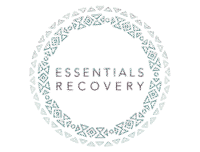Misinformation about addiction is widespread and often harmful. Myths about what causes addiction, who is affected, and how recovery works can prevent people from seeking help or supporting others who need it. These false beliefs create stigma and make it harder to have honest, compassionate conversations about substance use disorders.
By breaking down common myths and presenting facts rooted in science and lived experience, we can help create a more informed, supportive environment for recovery. Understanding the truth about addiction opens the door to better treatment, healthier relationships, and stronger communities.
Myth: Addiction Is a Choice
One of the most persistent myths is the idea that addiction is simply a bad choice. People often assume that those who become addicted lack willpower or moral strength. This view overlooks the complexity of addiction as a brain-based disease.
The truth is that while initial substance use might be voluntary, addiction is not. Over time, repeated drug or alcohol use changes the brain’s structure and function, particularly in areas related to judgment, impulse control, and reward. These changes make it incredibly difficult to stop using, even when a person wants to. Addiction is a medical condition, not a character flaw.
Recognizing addiction as a disease doesn’t absolve responsibility, but it shifts the focus toward treatment and recovery rather than shame and punishment.
Myth: You Have to Hit Rock Bottom to Get Help
Many people believe that someone has to lose everything or experience a major crisis before they’re ready for recovery. This idea can delay treatment and keep people in dangerous situations for far too long.
The fact is that earlier intervention often leads to better outcomes. People don’t need to reach their lowest point to benefit from support. Encouraging treatment at the first signs of a problem can prevent serious consequences and make the recovery process smoother. Recovery is possible at any stage, and waiting for things to get worse can be risky or even life-threatening.
Everyone deserves help the moment they are ready, not just when they’ve hit rock bottom.
Myth: Only Certain Types of People Become Addicted
There’s a common stereotype that addiction only affects people from certain backgrounds or lifestyles. Some believe it mostly happens in poor neighborhoods or among people who are unemployed, while others assume addiction skips over high-functioning individuals or those with strong family support.
In reality, addiction doesn’t discriminate. It affects people of all ages, income levels, races, and professions. Substance use disorders are found among doctors, teachers, students, parents, and professionals in every field. Genetics, trauma, environment, mental health, and access to substances all play a role, but addiction can affect anyone.
By removing the stigma and stereotypes, we create space for more people to seek help without fear of judgment.
Myth: Willpower Alone Can Cure Addiction
Many believe that if a person just tries hard enough, they can overcome addiction on their own. While determination and commitment are important, willpower by itself is not enough.
Addiction involves powerful physical, emotional, and psychological components. Recovery often requires a structured treatment approach, including therapy, support groups, medical care, and sometimes medication. These tools help address both the substance use and the underlying causes driving it.
Relying solely on willpower can lead to repeated relapses and feelings of failure. Real support recognizes the need for a comprehensive, evidence-based approach.
Myth: Relapse Means Treatment Didn’t Work
Relapse is often misunderstood as a sign that treatment failed or that the individual is not serious about recovery. This belief can discourage people from continuing their journey or make them feel ashamed after a setback.
The truth is that relapse is a common part of the recovery process. Addiction is a chronic condition, and just like with other chronic illnesses such as diabetes or asthma, setbacks can happen. A relapse doesn’t erase progress; it simply means that the treatment plan may need to be adjusted.
What matters most is how someone responds to a relapse—whether they learn from it, seek support, and continue moving forward.
Myth: Medications Just Replace One Addiction with Another
Some people are wary of medication-assisted treatment for opioid or alcohol use disorders, believing that it’s just swapping one addiction for another. This misconception overlooks the role of medications in managing a chronic illness.
Medications like methadone, buprenorphine, and naltrexone help stabilize brain chemistry, reduce cravings, and prevent relapse. These medications are clinically proven to improve outcomes, especially when combined with therapy and support.
Using medication to support recovery is no different from using insulin for diabetes or antidepressants for depression. It’s a legitimate, effective tool that helps people regain stability and rebuild their lives.
Myth: Addiction Only Affects the Individual
While addiction directly impacts the person using substances, it also affects families, friends, workplaces, and communities. Relationships may suffer, financial stress can increase, and children may experience emotional or physical neglect.
At the same time, loved ones can play a powerful role in recovery. Family therapy, peer support, and community resources help build a network of encouragement and healing.
Understanding addiction as a shared challenge allows families and communities to become part of the solution. Recovery often thrives in an environment of empathy, boundaries, and mutual care.
Myth: People with Addiction Are Beyond Help
One of the most damaging myths is that people struggling with addiction are hopeless cases. This belief can lead to neglect, punishment, or abandonment, when what they need most is support and connection.
Recovery is possible for everyone. While the journey may be long and difficult, countless people have rebuilt their lives after addiction. With the right support, people can heal, grow, and contribute positively to their families and communities.
No one is beyond help. Believing in someone’s potential for recovery is often the first step in making that recovery possible.
Myth: Addiction Treatment Is a Quick Fix
Many assume that going to rehab for a few weeks will completely resolve someone’s substance use issues. In reality, recovery is an ongoing process that requires time, effort, and continued support.
Treatment is not a one-time event but part of a long-term strategy for wellness. It may include multiple levels of care such as detox, residential treatment, outpatient therapy, and aftercare. Life after treatment often involves attending support meetings, continuing therapy, and making lifestyle changes to support sobriety.
Expecting immediate results can lead to frustration or disappointment. Real progress takes time, and lasting recovery is built through consistent effort and support.
Myth: Talking About Addiction Encourages Drug Use
Some worry that open discussions about addiction—especially with young people—might encourage curiosity or experimentation. But avoiding the topic actually does more harm than good.
Education is one of the most powerful tools for prevention. Talking honestly about the risks of substance use, how addiction develops, and where to find help can empower people to make informed decisions. It also reduces shame, making it easier for those who are struggling to reach out.
When we break the silence around addiction, we create safer, more supportive spaces where people can learn, grow, and recover.
Creating a More Informed and Compassionate Society
Myths about addiction do real damage. They fuel stigma, discourage treatment, and isolate people who need help the most. By challenging these misconceptions, we can begin to replace shame with understanding, fear with knowledge, and judgment with support.
When we recognize addiction as a complex, treatable condition, we change the way our communities respond to those affected. We build a culture of empathy, where people are encouraged to seek help without fear. We improve outcomes, reduce suffering, and create hope for the future.
Everyone has a role to play in busting addiction myths. Whether you’re in recovery, supporting a loved one, or learning how to help, understanding the truth is the first step toward healing. Call us today at 855-509-1697.



